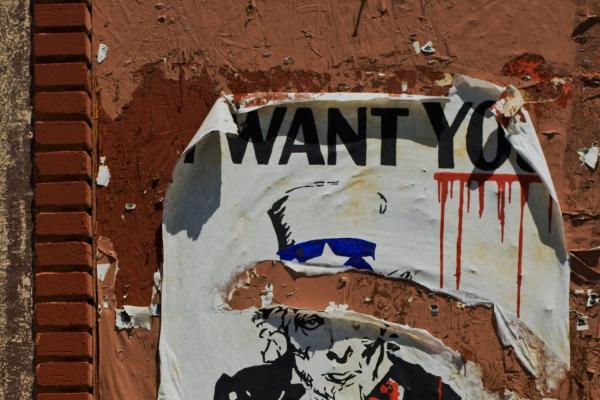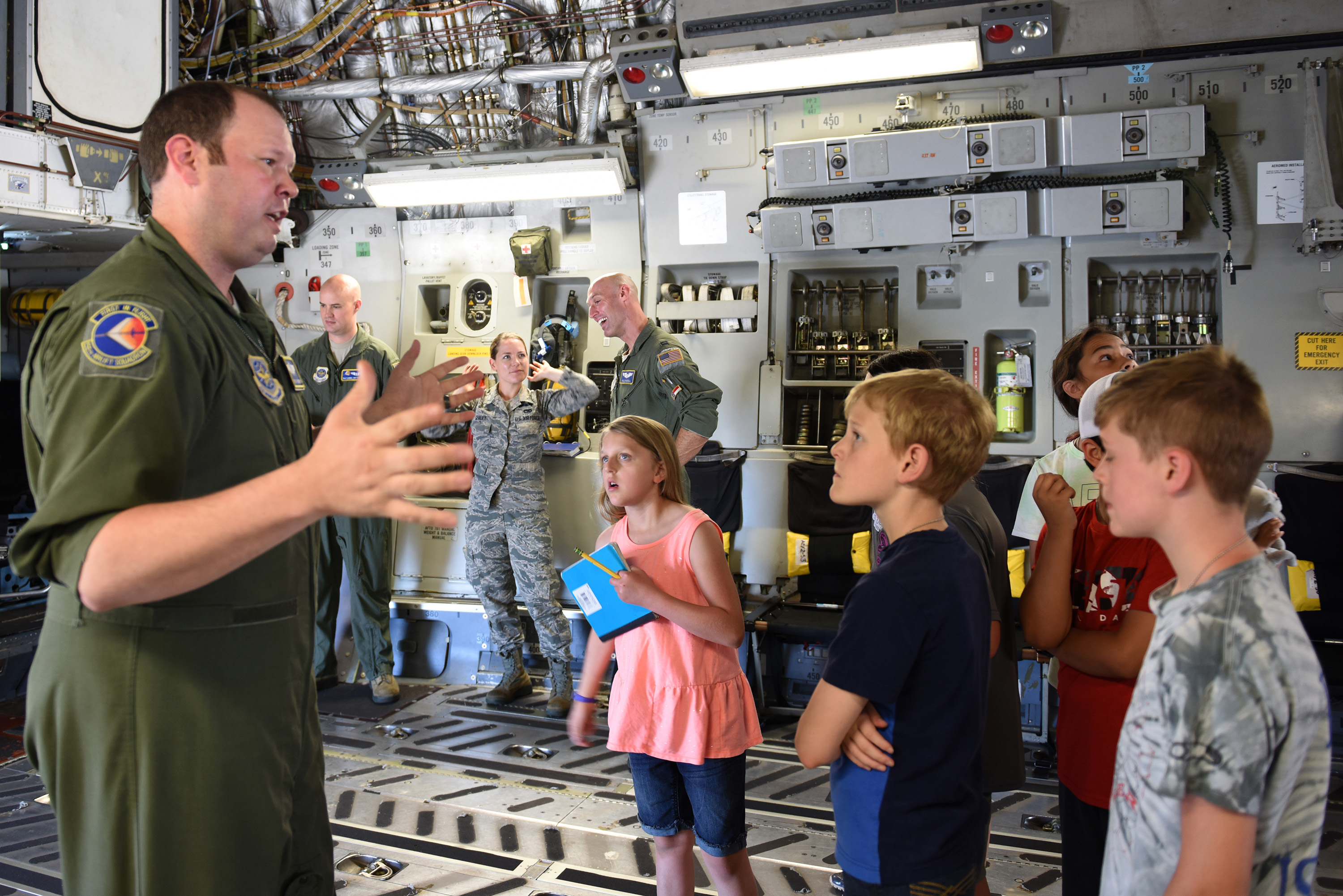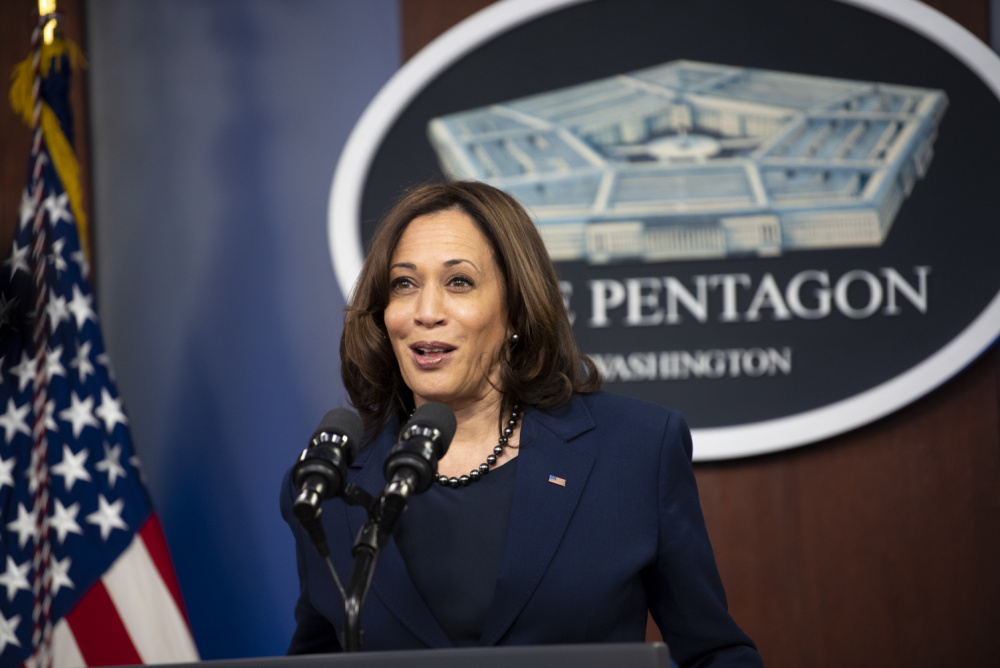Jorge Mariscal with Mónica Jaúregui -
For the thousands of young people brought to the United States as children of undocumented immigrant families, a pathway to legalization deferred one more day is a pathway deferred far too long. As we have reported in previous issues of DraftNOtices for almost a decade multiple attempts to pass federal legislation that would legalize these youth have failed. The so-called DREAM Act, or Development, Relief and Education for Alien Minors Act, still lingers in the halls of Congress. But Democratic Party concerns about the 2010 elections, especially in the wake of the health care reform fiasco, may delay further progress on any immigration reform. In the meantime, supporters of the DREAM Act continue to hope. For many, their desperation increases day by day.
The DREAM Act’s most recent incarnation is found in two bills sponsored by Senator Dick Durbin of Illinois and Representative Howard Berman of California. Both Senate bill 729 and H.R. 1751 propose to “permit States to determine State residency for higher education purposes and to authorize the cancellation of removal and adjustment of status of certain alien students who are long-term United States residents and who entered the United States as children, and for other purposes.” Last March, the Senate bill had only 32 co-sponsors and is now stalled at the Committee on the Judiciary; last May, the House bill with 106 co-sponsors was referred to the Subcommittee on Higher Education.
Perhaps a more important development related to the eventual legalization of undocumented youth is the comprehensive legislation recently introduced by Rep. Luis Gutierrez of Illinois. Although Gutierrez has not been an outspoken supporter of the DREAM Act, his new Comprehensive Immigration Reform for America's Security and Prosperity Act of 2009 (CIR ASAP) includes the following language:
Special Rule for Persons Brought to the United States Before the Age of 16: In order to simplify processing of applicants under CIR ASAP, those persons ordinarily covered under the DREAM Act will apply for status through the same program outlined above, with the following special features:
No fines for persons who were brought to the United States before the age of 16, have resided in the U.S. for at least five years, and were 35 years of age or less.
Such persons will be eligible for accelerated Lawful Permanent Resident (LPR) status upon graduation from high school, and completion of two years of college, military service, or employment. Persons granted LPR status under this provision would be eligible for naturalization three years after the date LPR status is granted.
Graduation from a U.S. high school or receipt of an equivalency degree will meet the English proficiency requirement.
Individual states permitted to determine residency requirements for in-state tuition purposes.
The problem that has consistently plagued DREAM Act language reappears in Gutierrez’s bill — there is no such thing as a two-year military enlistment contract. The implication that two years of military service can lead to permanent residency is misleading, and DREAM Act supporters have been remiss in ignoring this important detail. When poorly understood by undocumented youth, this fine print could track those youth directly into the armed forces with no understanding of what they have signed up for.
Moreover, some Latino activists have pointed to the fact that the CIR ASAP legislation calls for increased militarization of the U.S.-Mexico border. Operation Gatekeeper and earlier attempts to seal the border have led to increased death tolls for undocumented workers. By burying the DREAM provisions in a bill that progressive Latinos might otherwise oppose, the Gutierrez proposal adds yet another layer of militarized solutions to the issue of how undocumented youth, most of whom would enlist seeking an affordable education, might earn the legal status they deserve.
Who are the DREAMers?
Many DREAM advocates have supported the provisions under the new proposed CIR ASAP even though they see that many of its provisions are unlikely to pass. Although they would prefer to have a DREAM Act proposal as stand-alone legislation, they agree that it is important that the Obama administration support comprehensive reform and the passage of CIR ASAP.
Chief among the supporters are young immigrants and U.S.-born children of undocumented immigrants. "I am doing this to help my mom and my sister and my family and other undocumented students who are suffering," said one 20-year-old Oakland college student who did not want to give his name because he fears deportation. “Two million undocumented immigrants are Asian, and I'm one of them. . . . It's really crucial to me for this bill to be passed. This is the only thing I'm relying on, depending on."
Dr. Roberto Rodríguez of the University of Arizona tells the story of another anonymous student — Leticia X. According to Rodríguez, Leticia X is the very definition of a DREAM high school student. She is at the top of her class, is very involved, has worked hard to get into college, and even studies when sick. Unfortunately, like other undocumented students, she will be unable to attend college. This is not for lack of preparedness and/or readiness, not because her grades and involvement are lacking, and not because of laziness and apathy but rather because of a lack of opportunity — because the government offers no financial assistance to students like her. Due to rising tuition rates and ridiculously high out-of-state tuition rates, students like Leticia X lack the means to pay for a college education. If the law does not change soon, Leticia X, like many other unauthorized students, will not be able to attend college.
Undocumented youth cannot get a driver's license, cannot receive financial aid, and technically cannot hold a job. The level of desperation is extremely (and justifiably) high in the undocumented community. A pathway to legalization no matter what the risks is what they literally are dreaming of.
At the same time, many youth from recently arrived immigrant families operate out of a naive patriotism that grows out of a sense of "gratitude." Their living conditions here are usually so far superior to what they were in their country of origin that they believe they have to "give back" or "make a difference." Military recruiters prey on these very real emotions.
This explains why undocumented youth and the organizations that are fighting for passage of DREAM do not and often cannot see at least two important facts: 1) the DREAM was to a large degree developed and written by the Pentagon. One need only read Senator Durbin's testimony. It was not about education. It was strictly about making a pool of young, bilingual, U.S.-educated, high-achieving students available to the recruiters; and 2) the college option for legalization must be understood in the new climate for higher education. In California, rising costs and capped enrollments will make it virtually impossible for many undocumented youth to complete the two-year requirement, even at a community college. Recent studies show that a large percentage of Latino students who do attend community college drop out after five years with no degree due to financial pressures on the extended family.
For many, the situation is critical. Toward the end of 2009, media outlets reported on a series of undocumented students across the nation who committed minor infractions such as traffic violations and now faced deportation. Rescued by massive public outcry and the intervention of elected officials, these young people were classic “DREAMers” — outstanding students raised and educated in the United States. In Chicago, Rigoberto Padilla, whose family is from Mexico, had his hearing delayed for one year. In Detroit, Albanian-born Herta Llusho also was granted a delay as was Peruvian Alonso Chehade who recently graduated with a degree in business from the University of Washington. Should these young people be deported, they will be adrift in a country and a culture known to their parents but not to them.
Lessons for Counter-Recruiters
Lt. Col. Margaret Stock, one of the key consultants who helped draft DREAM Act legislation, recently wrote: “Because attending college is a very expensive proposition, the third option — joining the armed forces — is a likely choice for many of the young people who would be affected by the bill, hundreds of whom have already demonstrated an interest in joining the military.” Senator Durbin has emphasized repeatedly his hope that DREAMers will be a windfall for military recruiters.
The current crisis in higher education will lead not only to higher fees and tuition, but also to capped enrollments and reduced academic support services, thereby making it more difficult for working-class students to persist and graduate (see “The Education Crisis and Militarization” in this Draft NOtices). Military staffing needs will remain high as the Afghanistan campaign drags on, and even though rising unemployment is making the recruiter’s job easier, DREAMers still make up a highly desirable pool of not just warm bodies but bilingual, well educated, and highly motivated bodies.
Clearly, the seduction of young people into military service with the “promise” of legalization is a disturbing development. But counter-recruitment organizations should tread softly on the issue of whether or not they reject all of the DREAM Act provisions within CIR ASAP or just some of them. On the one hand, undocumented young people deserve a pathway to legalization, especially on the educational track. On the other hand, immigrant communities must be made aware of the reality of the relationship between militarization, military enlistment and immigration status. Here are some of the most important facts:
- All military enlistment contracts are for eight years, not two.
- Those who choose the military option but receive a less than honorable discharge may be subject to immediate deportation.
- Students who receive conditional permanent residency under the proposed law would not be eligible for federal college financial aid such as Pell grants.
- Conditional permanent residency does not equal Lawful Permanent Residency (LPR). Conditional residency lasts only six years.
- Citizenship can only be gained through the normal naturalization process; LPR status does not guarantee citizenship.
- Those who do not fulfill education or military requirements by the end of the six-year probation period may be subject to immediate deportation.
Counter-recruitment organizers should continue to question the harsh choice between college and the military. In 2006, Jeanne Batalova and Michael Fix of the Migration Policy Institute urged the authors of the DREAM Act to expand the options for earning LPR to include “vocationally oriented programs such as Job Corps, Department of Labor-certified apprenticeships, and selected non-degree programs,” pointing out the low college-attending rate for Latinos and the economy’s future need for skilled workers who are not college educated.
Similarly, the American Friends Service Committee (AFSC) has called for the “inclusion of a community and volunteerism service component to the DREAM Act,” stating “AFSC supports the provisions in the DREAM Act that provide a path to permanent residency to undocumented immigrant students and lifts penalties on states that provide undocumented immigrant students with in-state tuition. But we cannot support policy or legislation inviting immigrant students — or any student — to join the armed forces. AFSC vehemently rejects a military service component which serves as a de facto military draft for undocumented youth.”
The expansion of possible pathways toward legalization would capture hundreds of talented undocumented students who cannot afford college and do not choose to enlist.
Organizers also should familiarize themselves with the numerous cases of U.S. military veterans who face deportation proceedings upon leaving the military. The “Banished Veterans” website (http://www.banishedveterans.info/) contains numerous stories of veterans who fought overseas only to be detained in immigration centers and returned to their family’s country of origin. It cannot be emphasized enough that military service does not guarantee citizenship.
Many college students who support DREAM provisions say they will "make sure" their cousins and siblings do not enlist. But they ignore the harsh realities of the economy and the collapse of public higher education. When these supporters minimize the militarized aspects of DREAM legislation, they betray a kind of class blindness wrapped in a bootstraps mythology of "We did it, so can they." Let's hope they're right. But in case they’re wrong, counter-recruiters must continue to explain the realities behind the DREAM.
On a related issue: On November 9, 2009, Sen. Robert Menendez (D-NJ) introduced the Military Families Act, S. 2757. This legislation would grant lawful permanent residency (not citizenship) to an undocumented spouse, parent, or child of a living or deceased member of the armed forces assuming the family member currently is in the United States, meets all other requirements, and the service member receives an honorable discharge. The bill currently has only seven co-sponsors and was referred to the Committee on the Judiciary. Until this legislation passes, undocumented family members of U.S. military personnel still run the risk of being deported.
Information sources: Emily Bazar, “Groups try to delay deportations of illegal immigrant students,” USA Today (12/15/09); AFSC, “Education is a Human Right” (June 2009); Lt. Col. Margaret D. Stock, “Essential to the Fight: Immigrants in the Military Eight Years after 9/11” (Immigration Policy Center, 2009); Batalova and Fix, “New Estimates of Unauthorized Youth Eligible for Legal Status under the DREAM Act,” (Migration Policy Institute, 2006); Roberto Rodríguez, “Leticia X: ‘I consider myself a U.S. citizen. It’s the only country I’ve ever known,’” politicalarticles.net (10/26/09).
This article is from Draft NOtices, the newsletter of the Committee Opposed to Militarism and the Draft (http://www.comdsd.org/)





 The warning, given to me 25 years ago, came at the moment Pat Robertson and other radio and televangelists began speaking about a new political religion that would direct its efforts at taking control of all institutions, including mainstream denominations and the government. Its stated goal was to use the United States to create a global, Christian empire. It was hard, at the time, to take such fantastic rhetoric seriously, especially given the buffoonish quality of those who expounded it. But Adams warned us against the blindness caused by intellectual snobbery. The Nazis, he said, were not going to return with swastikas and brown shirts. Their ideological inheritors had found a mask for fascism in the pages of the Bible. - Chris Hedges (From his article:
The warning, given to me 25 years ago, came at the moment Pat Robertson and other radio and televangelists began speaking about a new political religion that would direct its efforts at taking control of all institutions, including mainstream denominations and the government. Its stated goal was to use the United States to create a global, Christian empire. It was hard, at the time, to take such fantastic rhetoric seriously, especially given the buffoonish quality of those who expounded it. But Adams warned us against the blindness caused by intellectual snobbery. The Nazis, he said, were not going to return with swastikas and brown shirts. Their ideological inheritors had found a mask for fascism in the pages of the Bible. - Chris Hedges (From his article: 



 David Swanson is the author of the new book, Daybreak: Undoing the Imperial Presidency and Forming a More Perfect Union, by Seven Stories Press and of the introduction to The 35 Articles of Impeachment and the Case for Prosecuting George W. Bush by Dennis Kucinich. In addition to cofounding AfterDowningStreet.org, he is the Washington director of Democrats.com and sits on the boards of a number of progressive organizations in Washington, DC.
David Swanson is the author of the new book, Daybreak: Undoing the Imperial Presidency and Forming a More Perfect Union, by Seven Stories Press and of the introduction to The 35 Articles of Impeachment and the Case for Prosecuting George W. Bush by Dennis Kucinich. In addition to cofounding AfterDowningStreet.org, he is the Washington director of Democrats.com and sits on the boards of a number of progressive organizations in Washington, DC. Jorge Mariscal is the grandson of Mexican immigrants and the son of a U.S. Marine who fought in World War II. He served in the U.S. Army in Vietnam and currently teaches at the University of California, San Diego.
Jorge Mariscal is the grandson of Mexican immigrants and the son of a U.S. Marine who fought in World War II. He served in the U.S. Army in Vietnam and currently teaches at the University of California, San Diego. Matt Guynn plays the dual role of program director and coordinator for congregational organizing for On Earth Peace, building peace and nonviolence leadership within the 1000+ congregations of the Church of the Brethren across the United States and Puerto Rico. He previously served a co-coordinator of training for Christian Peacemaker Teams, serving as an unarmed accompanier with political refugees in Chiapas, Mexico, and offering or supporting trainings in the US and Mexico.
Matt Guynn plays the dual role of program director and coordinator for congregational organizing for On Earth Peace, building peace and nonviolence leadership within the 1000+ congregations of the Church of the Brethren across the United States and Puerto Rico. He previously served a co-coordinator of training for Christian Peacemaker Teams, serving as an unarmed accompanier with political refugees in Chiapas, Mexico, and offering or supporting trainings in the US and Mexico. Rick Jahnkow works for two San Diego-based anti-militarist organizations, the Project on Youth and Non-Military Opportunities and the Committee Opposed to Militarism and the Draft. He can be reached at:
Rick Jahnkow works for two San Diego-based anti-militarist organizations, the Project on Youth and Non-Military Opportunities and the Committee Opposed to Militarism and the Draft. He can be reached at:  Pat Elder was a co-founder of the
Pat Elder was a co-founder of the 
 Edward Hasbrouck grew up in Wellesley, Massachusetts, a suburb of Boston. He considers myself primarily a political activist. Hasbrouck began his resistance to the violence of illegitimate authority as an elected but nonvoting student representative to the local school board and as an activist for peace, disarmament, and students' rights. His first book was a handbook for high school students on their legal rights co-authored in the summer of 1977, between high school and college, as an intern for the student service bureau of the Massachusetts Department of Education. He majored in political science at the University of Chicago until leaving school to pursue direct involvement in political activism.
Edward Hasbrouck grew up in Wellesley, Massachusetts, a suburb of Boston. He considers myself primarily a political activist. Hasbrouck began his resistance to the violence of illegitimate authority as an elected but nonvoting student representative to the local school board and as an activist for peace, disarmament, and students' rights. His first book was a handbook for high school students on their legal rights co-authored in the summer of 1977, between high school and college, as an intern for the student service bureau of the Massachusetts Department of Education. He majored in political science at the University of Chicago until leaving school to pursue direct involvement in political activism.




